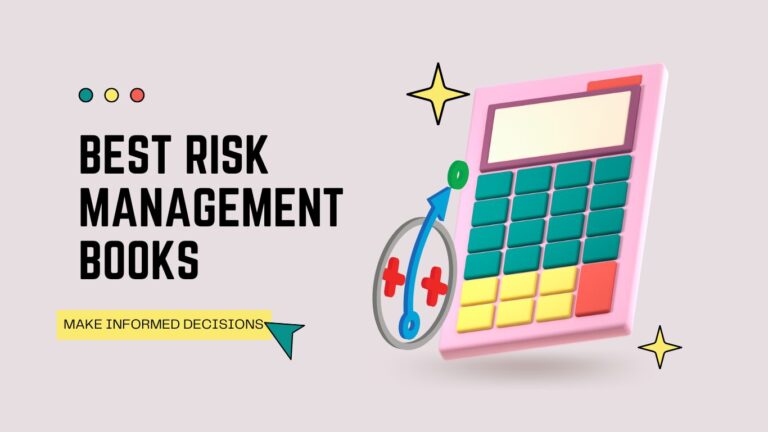As rightly quoted by Warren Buffett, “Opportunities come infrequently. When it rains gold, put out the bucket, not the thimble.” Perhaps your financial worthiness tomorrow boils down to whether you seized the right opportunity today. Having to deal with financial decision-making is not limited to economists alone. The basic know-how about efficient financing is also being addressed by investors and individuals who aspire to be ‘financially sound’ in the future. Before going through the list of six best behavioral finance books, let us first understand the concept of behavioral finance.
Table of Contents
What is behavioral finance?
The study of behavioral finance integrates knowledge from economics and psychology to better understand how people make financial decisions. It acknowledges that human behavior can diverge from wholly rational decisions, in contrast to classical finance, which makes the assumption that people always make rational decisions based on the facts at hand.
With the help of behavioral finance, we can explain irrational behaviors like overspending, overoptimism, overconfidence, herding, loss aversion, etc. It is a useful measure to analyze market returns in hindsight, thereby helping investors adopt investment strategies and potentially outperform in the future.
In this article, we will look at the top 10 behavioral finance books to help you get the most out of your opportunities.
Top 6 Behavioral Finance Books
1. Thinking, Fast and Slow by Daniel Kahneman

Book review and key takeaways:
“Thinking Fast and Slow” is a book by Daniel Kahneman, a Nobel Prize-winning psychologist. The two thought processes that affect human decision-making—System 1 (quick, instinctive, and emotive) and System 2 (slow, deliberative, and logical)—are examined in this book.
The book offers remarkable insights into the human mind, decision-making models, and errors. Kahneman’s ability to engage the reader in every single chapter from the first to the last is really a type of writing that has the reader in awe. This book is a captivating exploration of the human mind, drawing on decades of groundbreaking research.
It delves into the granular details of behavioral biases, heuristics, cognitive illusions, and decision-making. The book is quite long and rehashes much of the academic history. It also delves into Kahneman’s relationship with Amos Tversky in quite a lot of detail. Though a slow read, the book will have you reflect on things you may have never considered.
Also, you may read Best Books on Software Testing – MUST READ NOW!
2. Predictably Irrational: The Hidden Forces That Shape Our Decisions, by Dan Ariely

Book review and key takeaways:
“Predictably Irrational” is a book by Dan Ariely, a behavioral economist, that explores the irrational and often predictable patterns of human decision-making. It is a book that made behavioral economics popular and remains a cornerstone of this topic.
The author unveils the paradoxes that underpin our decision-making. His narrative is both accessible and magnetic, transforming complex experiments into relatable stories. Each chapter is a revelation, an experiment leading to moments that expose the contradictions of our psyche. The flow is natural, and the conclusions are startling. He also goes into some detail on how one can mitigate against such irrationality.
The book is interesting, approachable, and full of stories that make abstract ideas relatable. In addition to pointing out the irrationality of our decisions, Ariely investigates the psychological underpinnings of these actions. Academics and ordinary readers interested in learning about the peculiarities of human decision-making will find it to be an engaging read because of the narrative approach.
3. The Behavioral Investor by Daniel Crosby

Book review and key takeaways:
“Behavioral Investor” is a book by Dr. Daniel Crosby, a psychologist and behavioral finance expert. The book is a very well-written piece of work to help you understand your emotions better while investing and the constraints and limitations of the human element while investing. In short, this book is mostly about the psychology of long-term investors. It offers rich advice on why we choose what we choose and how to choose the best. Every chapter opens up doors into people’s psyches. The better thing about the book is that the conclusions are based on experiments and not the author’s prejudice or theoretical knowledge.
The book identifies four types of risk: ego, emotion, conservatism, and attention. It recommends rule-based investing, ignoring forecasts and instead focusing on long-term averages, and doesn’t allow noise to affect your emotions.
Also, you may read 8 Best Books To Read On Blockchains And Cryptocurrencies
4. The Psychology of Money by Morgan Housel

Book review and key takeaways:
“The Psychology of Money” is a book by Morgan Housel that explores the psychological aspects of personal finance and investment decisions.
Through this book, the author reveals a lot of true facts on financial aspects related to savings, investments, forecasts, etc., as well as on our psychological aspects of spending money. Some key points of learning are that what we think about money and finance is mostly a reflection of our own personal experience with them and is mostly driven by emotions. It teaches us that several outcomes in life are guided more by risk and luck than our individual efforts. Therefore, we should focus less on individuals and more on broad patterns.
The author advises not to risk what you have in need for what you don’t have and don’t need. According to him, if a little growth serves as fuel for future growth, the final results can be astonishing due to compounding magic. Good investing is not about getting the highest returns. It’s about earning decent returns for a very long period of time and letting compounding happen.
5. The Little Book of Behavioral Investing: How Not to Be Your Own Worst Enemy by James Montier

Book review and key takeaways:
“The Little Book of Behavioral Investing: How Not to Be Your Own Worst Enemy” by James Montier is a concise guide that explores the impact of behavioral biases on investment decisions. This is a crisp and succinct account of behavior finance. It gives a complete map of what behavioral investing is and the various elements involved in it. It explains in sufficient detail various psychological pitfalls, biases, and mistakes committed by investors.
The book explains how your own behavioral traits may hamper sound investment decisions. It narrates circumstances in many real-time situations wherein various behavioral pitfalls detrimental to investment decisions have been explained. The author has used lucid language and explained psychological terms that can be understood by a layman.
The author does a great job of identifying and providing evidence-based studies of cognitive biases. It is a great tool for any investor to understand the mistakes your gut will try to make you commit.
Also, you may read 10 Best Books on Crypto | Free Download Links
6. Misbehaving: The Making of Behavioral Economics

Book review and key takeaways:
“Misbehaving: The Making of Behavioral Economics” is a book written by Richard H. Thaler, a pioneer in the field of behavioral economics.In addition to illuminating the difficulties experienced by economists who ventured to question accepted economic theories, Thaler offers an engrossing account of the birth and growth of behavioral economics.
The author talks about his friendship with Daniel Kahneman and Amos Tversky and how the interactions between the three of them shaped the field of behavioral economics. His journey from an outsider who questioned the dogma of rationality that underpins most mathematical models used in economics to one who advised state governments on public policies is inspirational. All arguments and inferences of the author are supported by facts and research. These are amazing, yet they can be very simply understood when we look into our own decisions and inclinations.
It is like an action thriller, and you would enjoy every moment of going through this book. Finally, you get to see someone who challenges rationality with his rigorous, ground-breaking research.
Conclusion
The best behavioral finance books can vary widely and rely on personal requirements and tastes. These suggestions are intended for a wide range of readers, including both novices and experts in the subject of behavioral finance. To identify the books that most align with your interests and learning style, it’s usually helpful to investigate a variety of viewpoints and writing styles.
Frequently Asked Questions
Are behavioral finance books only for economists and investors?
No, books on behavioral finance are not just for investors and economists. Even though these books cover economic and financial topics, a much wider readership finds them appealing and relevant. Since behavioral finance investigates the psychological aspects of decision-making, a broad spectrum of people can benefit from the knowledge found in these publications.
What is the difference between finance and behavioral finance?
The study of finance includes risk-return optimization, market efficiency, and rational economic decision-making. Behavioral finance, on the other hand, incorporates psychology and looks at how social, emotional, and cognitive biases affect financial decisions. It identifies departures from reason and offers insights into mispricing, market oddities, and the influence of human behavior on financial markets.
Where can I buy behavioral finance books?
You can purchase behavioral finance books from various online and offline retailers. Some of the online retailers are: Amazon, eBay, Walmart, etc.









